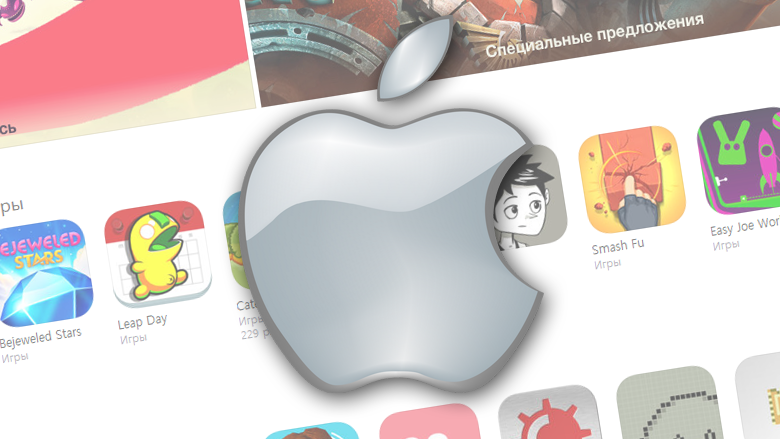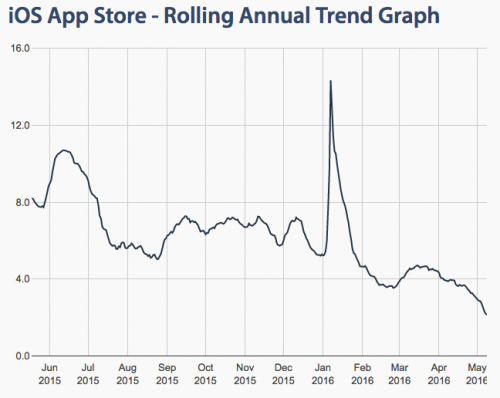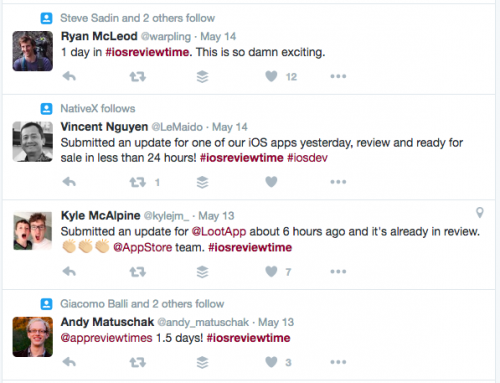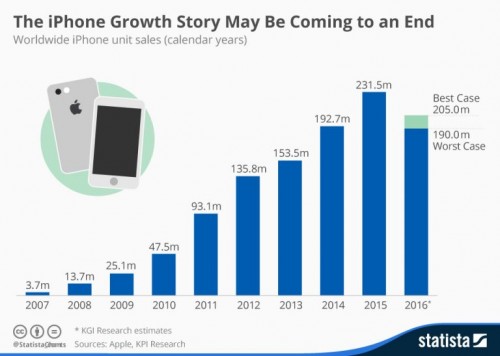Recently, the time for reviewing applications in the App Store has been reduced to 1-2 days. Eric Seufert from Rovio explained what caused this.

The original version of the material can be found on Mobile Dev Memo, a website dedicated to the mobile industry, hosted by Eric Seferth himself, author of the book Freemium Economics.
Apple, as you know, moderates the iOS App Store, approving or disapproving of this or that application. Applications submitted to the store must be reviewed by the editorial team before it becomes available for download. Historically, the review process takes from seven to ten days (not counting the Christmas holidays, during which the application review period may seriously increase). As a result, developers began to take this feature into account when preparing.

But quite unexpectedly – and without any fanfare – Apple made changes to its application review process that significantly reduced the time spent by the application in limbo. According to AppReviewTimes.com , a site that tracks the average review time, receiving this data directly from users, now applications are under consideration for only about two days. For comparison, a year ago it took more than a week. The developers themselves are talking about this change on Twitter, using the hashtag #iosreviewtimes.

Obviously, the reduction in review time is the result of a conscious decision made by Apple. But what kind of decision it was – to increase the team of editors, lower standards, introduce automation of review – remains a mystery. Even more interesting, why was this decision made?
The change in timing occurred just a couple of weeks after Apple published disappointing results for the 2nd quarter of this year, which, among other things, witnessed a 25% drop in the company’s sales in China. In the second quarter of this year, the company sold 10 million fewer iPhones than a year ago. The company’s revenues for the same period compared to last year fell for the first time in 13 years. During the conference dedicated to the publication of the quarter’s results, the company predicted that the results of the next quarter would also not be pleasant (despite the fact that CEO Tim Cook used the word “optimistic” nine times. For comparison, in total for the previous five similar conferences, he used this word only three times).

Perhaps we live in a world of falling iPhone revenue. The device replacement cycle has increased. Now, instead of two years, it takes about three. Smartphone sales in general are slowing down as the largest markets (in this case, Chinese) reach saturation point.
Apple’s future growth may not be related to iPhone sales. Most likely, in the longer term, it should be associated with the sales of new products that Tim Cook hinted at (perhaps with a car, the appearance of which will explain the $ 1 billion investment in the Chinese transport company Didi Chuxing). In the short term, revenue growth is possible in case of an increase in revenue from services. It was the services in the presentation that were the “bright spot”: the company’s service division (Apple Music, Apple App Store, and so on) showed a 20% increase compared to the same period last year. They reached $6 billion, surpassing iMac and iPad sales.
Within this context, shortening the review period makes sense. Apple could well have taken up work on increasing the profitability of the App Store, since this is due to the company’s revenue growth in the short and medium term, while work is underway on their new big project. Yes, shortening the review time does not directly affect this, but creates a more developer-friendly atmosphere, allowing applications to iterate faster and with less administrative control. This is important: the application review cycle is not the most pleasant thing for developers. Its reduction (in other cases to one day) will contribute to the creation of applications exclusively for iOS (applications that will be optimized for a specific ecosystem, and not for both existing ones).
Phil Schiller, Apple’s vice president of global marketing, took over the App Store last December and has been flirting with developers ever since. According to rumors, he put a team of 100 people on the task of improving the App Store search. One of the team’s proposals, according to rumors, was the introduction of paid advertising in the App Store. This is unlikely (and probably will be a mistake), but the fact that the work of this team has reduced the time for reviewing the application (perhaps they created a system for reviewing applications or simply began to review them themselves). Whatever is behind this, the development of the App Store towards a more simplified and friendly system looks like a strategic step in focusing on earning from the services of a company that historically did not seem to think about it.
A source: mobiledevmemo.com
